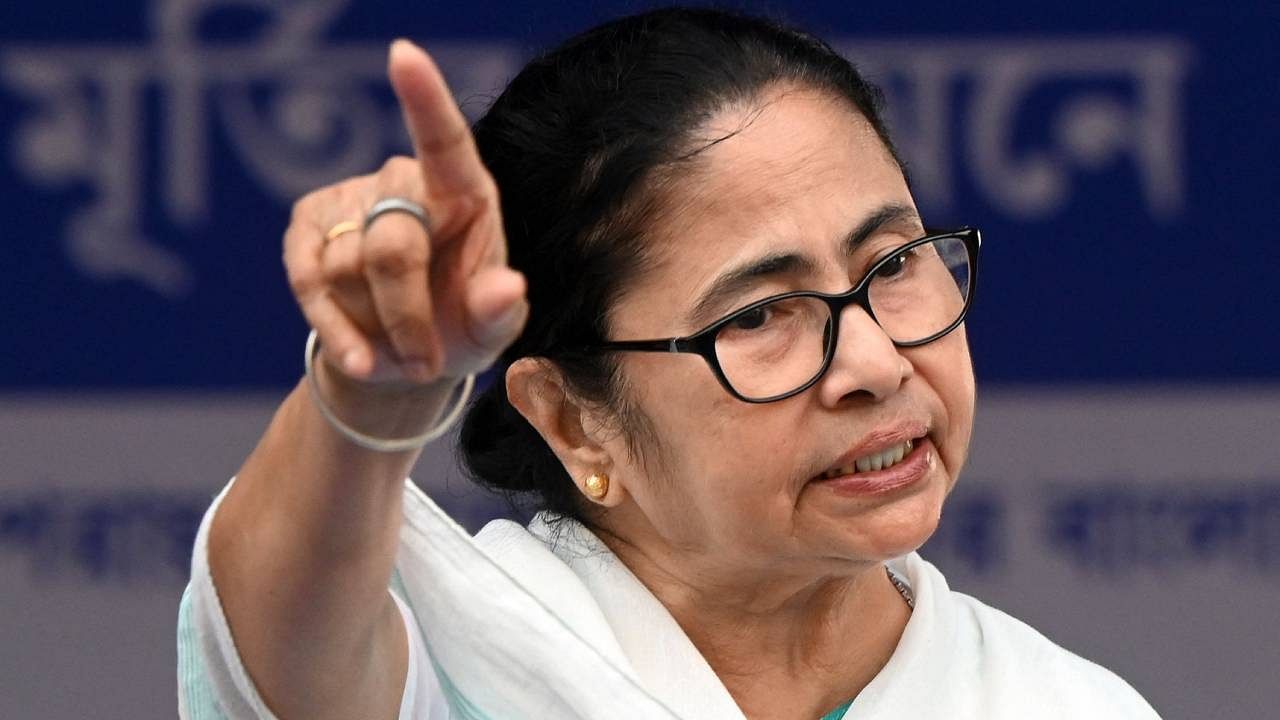
Trinamool chief Mamata Banerjee, on Wednesday, asked parties in Opposition for a collective fight for defeating the BJP, warning the party that it will not return to power in 2024, no matter how much noise it makes.
Speaking from the stage on Red Road in Kolkata, where she’s sitting on a two-day dharna protesting against Centre’s freeze of funds to the state for public schemes, Banerjee said that every party in the Opposition has to fight together, and BJP has to be removed from ‘the chair’.
“All Opposition parties have to fight unitedly, successfully, and the BJP needs to be removed from the chair. Remove the misrule, and save India…save democracy… save the poor people…,” Banerjee said.
The Trinamool chief said that it’s not a matter of interest who will be the leader, there’s no fight over this issue, the fight is about saving the country. “The fight is the BJP versus the people. Everybody is a leader of this country, every citizen is a leader. The fight of the BJP will be with the people of this country, one-is-to-one. The BJP will have to quit the chair,” she said.
In the entire country, Banerjee said, there’s no opposition party against which there are no atrocities. “There are many who stay quiet and can’t speak openly,” she said, and asked who’s left out, in context of central agencies. Naming prominent opposition leaders, Banerjee asked if they were all ‘thieves’ and the party in power was a ‘saint’?
Talking about Karnataka elections, Banerjee asked why for Bengal the election was in seven phases, but one phase for the state. She added that NDA partners have parted ways, and the BJP’s peak time is over. She saw a flickering hope for the BJP in Madhya Pradesh, and felt the BJP is relatively better in Uttar Pradesh, but the Trinamool will go to ‘play’ in Uttar Pradesh, along with Akhilesh Yadav. Naming several states, Banerjee wondered if the BJP will get any votes in other states, including in Karnataka.
Banerjee alleged that the party in power wants to put everyone in jail, using central agency before elections so that political representatives of the parties cannot work in their areas, and do organisational work.